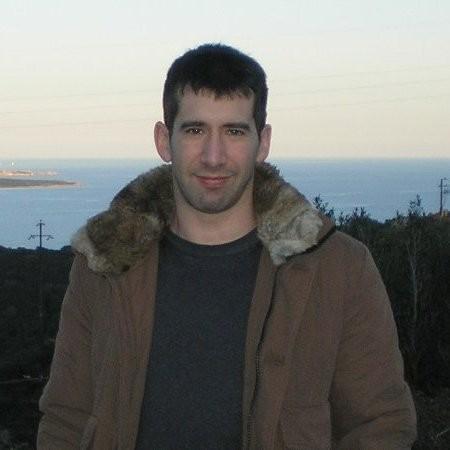|
| Use of Rodent Behavioral Models to Investigate the Effects and Mechanism of Action of Classical Psychedelic Drugs and Related Molecules |
| Sunday, May 28, 2023 |
| 3:00 PM–3:50 PM |
| Hyatt Regency, Centennial Ballroom D |
| Area: BPN; Domain: Applied Research |
| Chair: Jonathan W. Pinkston (Western New England University) |
| CE Instructor: Adam Halberstadt, Ph.D. |
| Presenting Author: ADAM HALBERSTADT (University of California San Diego) |
| Abstract: Classical psychedelic drugs such as lysergic acid diethylamide (LSD) and psilocybin induce profound alterations of consciousness via 5-HT2A receptor activation. Over the last twenty years, considerable clinical evidence has emerged indicating that psychedelic drugs may have therapeutic efficacy against a range of disorders, including depression, anxiety, substance abuse, and chronic pain. The therapeutic use of psychedelics has a number of potential limitations, including off-target interactions and the intense hallucinogenic effects produced by these substances, which necessitates close clinical supervision for several hours and can cause anxiety and confusion in some patients. However, the degree to which the clinical efficacy of psilocybin and related substances are linked to their psychedelic effects is not entirely clear. It may be possible to decouple the psychedelic and therapeutic effects produced by this drug class, potentially permitting the development of analogs of existing psychedelics that retain therapeutic activity but with less potential to produce hallucinogenic effects and undesirable side-effects. Developing and evaluating new agents from this class has historically been difficult due to the complexities associated with the preclinical assessment of psychedelic potential. The presentation will review work conducted over the last decade to develop and optimize preclinical behavioral models that can be used to characterize psychedelic-like molecules. In addition to helping to answer fundamental questions about the mechanism-of-action and structure-activity relationships of psychedelic drugs, the availability of these models has facilitated the identification of new members of this drug class with unique pharmacological properties. These second-generation molecules are starting to move through the drug development pipeline and are being investigated as novel therapeutics. |
| Instruction Level: Intermediate |
| Target Audience: Basic and clinical researchers and mental health professionals. |
| Learning Objectives: Participants will be able to: (1) Describe potential therapeutic effects of psychedelic drugs on depression, anxiety, substance abuse, and chronic pain, (2) Discuss the potential limitations of the therapeutic use of psychedelics, including off-target interactions and the hallucinogenic effects produced by these substances, and (3) Describe work conducted over the last decade to develop and optimize preclinical behavioral models that can be used to characterize psychedelic-like molecules. |
| |
| ADAM HALBERSTADT (University of California San Diego) |
 Dr. Adam L. Halberstadt is an Associate Professor of Psychiatry at the University of California
San Diego (UCSD). He received a B.S. in Neuroscience from the University of Delaware in
1998 and a Ph.D. in Neurobiology from the University of Pittsburgh in 2006. Dr. Halberstadt’s
research focuses on the neurobiology of serotonin and the pharmacology and effects of
psychedelic drugs (serotonergic hallucinogens). He is currently the co-director of the
Psychedelics and Health Research Initiative (https://phri.ucsd.edu), which coordinates novel
basic and clinical research with psychedelics at UCSD. His laboratory at UCSD studies
psychedelic drugs using a cross-species translational approach and includes both preclinical and
clinical research programs. Dr. Halberstadt is currently conducting a clinical trial at UCSD to
investigate whether psilocybin can relieve the symptoms of intractable phantom limb pain in
amputees. His preclinical research program focuses on the pharmacology and mechanism-ofaction
of existing and novel psychedelic molecules. Dr. Halberstadt was also the primary editor
of “Behavioral Neurobiology of Psychedelic Drugs”, a volume that was published by Springer in
2018 as part of their Current Topics in Behavioral Neurosciences (CTBN) series. Dr. Adam L. Halberstadt is an Associate Professor of Psychiatry at the University of California
San Diego (UCSD). He received a B.S. in Neuroscience from the University of Delaware in
1998 and a Ph.D. in Neurobiology from the University of Pittsburgh in 2006. Dr. Halberstadt’s
research focuses on the neurobiology of serotonin and the pharmacology and effects of
psychedelic drugs (serotonergic hallucinogens). He is currently the co-director of the
Psychedelics and Health Research Initiative (https://phri.ucsd.edu), which coordinates novel
basic and clinical research with psychedelics at UCSD. His laboratory at UCSD studies
psychedelic drugs using a cross-species translational approach and includes both preclinical and
clinical research programs. Dr. Halberstadt is currently conducting a clinical trial at UCSD to
investigate whether psilocybin can relieve the symptoms of intractable phantom limb pain in
amputees. His preclinical research program focuses on the pharmacology and mechanism-ofaction
of existing and novel psychedelic molecules. Dr. Halberstadt was also the primary editor
of “Behavioral Neurobiology of Psychedelic Drugs”, a volume that was published by Springer in
2018 as part of their Current Topics in Behavioral Neurosciences (CTBN) series. |
|
| |